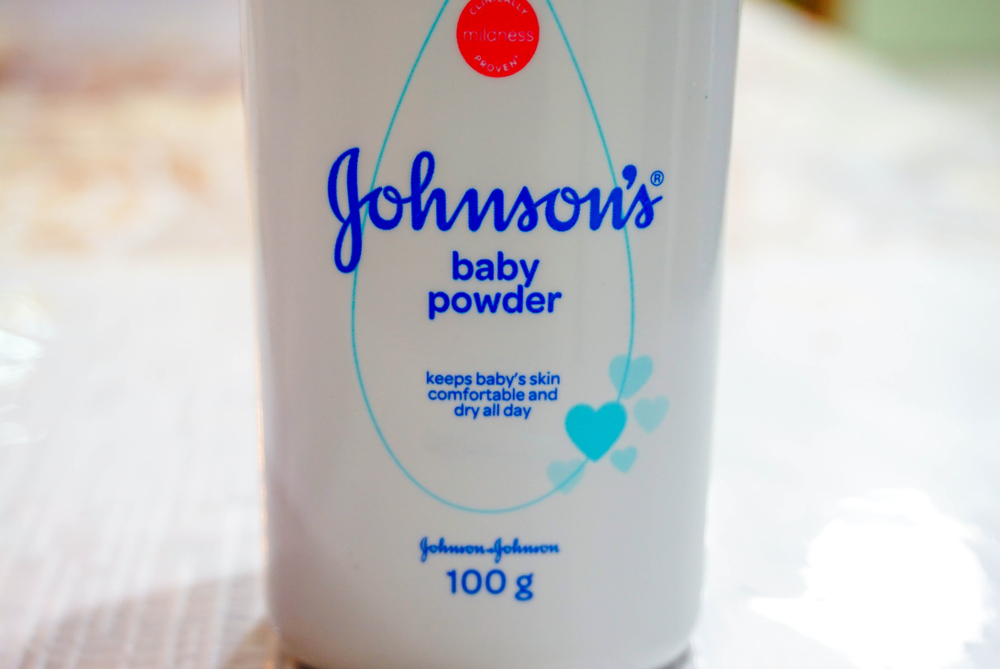Johnson & Johnson will stop manufacturing talc-based baby powder next year in response to lawsuits alleging the mineral causes cancer. The pharmaceutical giant phased out talc baby powder in North America in 2020, but it is still available in other countries. Cornstarch will replace the main ingredient. The company said in a statement provided to the Associated Press that it is getting rid of the product because of dwindling demand caused by "misleading talc litigation advertising that caused global confusion and unfounded concern." Johnson & Johnson remains adamant that its talc powder does not cause cancer.
Can Talc Exposure Cause Cancer?
Baby powder treats diaper rash, soothes rashes and irritation, and helps eliminate odors and chafing. Talc absorbs moisture and reduces friction, which is why it's widely considered an ideal baby powder ingredient. The fine texture of baby powder makes it easy to inhale, which is how some consumers say they got sick. Ovarian cancer patients allege that using the powder near their genitals caused them to develop the disease.
The link between talc and certain cancers is contested. Johnson & Johnson argues that scientific studies have found no association between cancer and talc. The National Cancer Institute has said there's no evidence that talc exposure causes ovarian cancer. But other research, including a review of dozens of existing studies, has found that talcum exposure might increase the risk of a cancer diagnosis. Talc is similar in structure to asbestos, a known carcinogen that causes mesothelioma. Talc and asbestos are often found in the same mines and are sometimes mixed together while processed. When talc contains asbestos, it's associated with a higher cancer risk. Beauty and personal care industry associations have advised against using asbestos-contaminated talc since the 1970s.
While a definite connection between talc and cancer isn't conclusive, plaintiffs have still been successful in lawsuits against J&J. They say that the company had a duty to warn consumers about the potential effects of talc-based baby powder. Juries have awarded billions of dollars to people who say they developed cancer because of talc. In some cases, plaintiffs successfully argued that the company acted negligently and released a product with a design defect.
The “Texas Two-Step” Approach
Last year, J&J created a subsidiary, LTL Management, to handle the talcum baby powder lawsuits. J&J asked to file for bankruptcy through the subsidiary and argued that the company wouldn't be able to settle the talc lawsuits otherwise. The manufacturer has already spent a significant sum on talc-related litigation. In 2020, J&J settled over 1,000 cases for $100 million. Last year, the Supreme Court upheld a $2 billion award for 20 women who suffered ovarian cancer after using J&J talc-based products.
The company's bankruptcy bid is already facing appeals from talc powder plaintiffs. If the bankruptcy holds, settlements for the plaintiffs will almost certainly be lower than previously expected. Because J&J could handle the payments in bankruptcy court through the subsidiary, it would protect its assets and potentially save billions of dollars in settlements. The matter could go before the U.S. Supreme Court, which would further delay proceedings and stop cancer patients, survivors, and their loved ones from getting compensated swiftly.
Johnson & Johnson's legal strategy is controversial but not unique. Known as the "Texas two-step," creating a corporation and transferring the litigation to the new company is something businesses often do when facing mass torts. The companies create the new business in Texas, where it's allowable to divide a corporation in two. Then, the new business files for bankruptcy, and the litigation is handled in bankruptcy court instead of through jury trials that are likely to produce bigger settlements. Politicians have campaigned for the approach to be banned. U.S. Sen. Sheldon Whitehouse said earlier this year during a subcommittee hearing that it's a "trick of corporate law to hide assets in plain view." For now, the strategy is still permitted. LTL Management has only $2 billion in assets — a sharp contrast to J&J's $435 billion net worth.
Where Talc Baby Powder Victims Now Stand
J&J insists that discontinuing talc baby powder is due to lower demand, not because the product is dangerous. But for those diagnosed with cancer after talc powder exposure, the change means the company may be feeling the effects of victim stories being shared widely. Whether bankruptcy proceedings are successful will affect how much plaintiffs get for their medical bills, pain and suffering, decreased quality of life, and lost wages.










